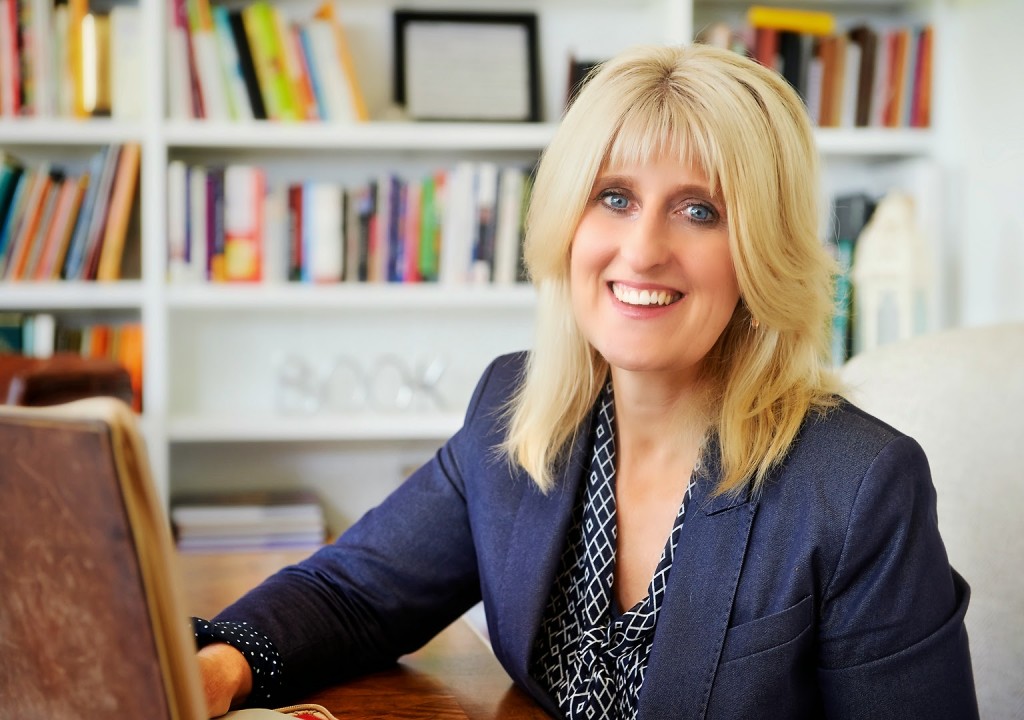Elaine Fraser has been a writer for Kinwomen since its inception late 2012. She has published four books and very soon she will be publishing her fifth. One particular book series that we wanted to highlight here on to our network especially for the Mum’s of teenage girls, is “The Beautiful Lives Series“…
So one of our Writers Amanda recently interviewed Elaine about the upcoming release of her third book in the series;
Hello Elaine,
Well done on the release of your third book in the beautiful lives series, tell me where did the idea of this series begin?
Thank you, Amanda. The idea for this series began in 2010. I’d tried to write a novel a couple of years before and it was so bad, even I couldn’t read it! I had a bunch of ideas in a trunk, in the corner of my office and I felt God say to me that I needed to get my notes out of the trunk and throw the trunk out. It was a pretty nice trunk, but I emptied it (and gave it away—I couldn’t bear to throw it away)
On the eleventh of December at 9am, I sat at my kitchen table and began to write. Ideas flowed and when I looked up at the clock it was 10am. When I looked down at my page, I had characters and plots for several novels. I felt very clearly that I had to begin to write.
I’d already written two non-fiction inspirational books, Beautiful: beauty tips for the soul and Too Beautiful: more beauty tips for the soul based on devotional teaching at the high school I‘d taught at. The idea for these novels was based on the idea that I could take the principles I’d written about in the Beautiful books and turn them into stories. Stories about girls who struggle with life issues, struggle with faith, struggle with life.
Each book would have a different main character and she would have a distinct personality and distinct life issues. The overarching aim would be to write about how they figured things out, without having everything perfect, without having all the answers, but at the same time learning that their lives could be beautiful expressions.
The story is in the struggle. I grapple with issues all the time. I question and study and wrestle with my beliefs and values. I have to work out my own faith. If I write in such a way that depicts characters who seem to accept everything without questioning, then am I giving the reader what they need? Stories that show that faith isn’t black and white. Faith is something robust and challenging and worth working out.
What is the big idea for book one Perfect Mercy?
Mercy is a year twelve student in a fictitious high school on the NSW coast and she’s one of those girls. You know the type, they look good, they’re clever and they’re nice people. But, she learns that it’s okay to be herself, to find friends who align with her values, to not have to be perfect.
The blurb of the book says:
“Mercy Hamilton has ‘the perfect life’. She’s gorgeous, has amazing fashion sense, she’s intelligent and has the perfect boyfriend, family, and home. Things start to unravel when Mercy does something she regrets at a party. Her perfect world falls apart when she discovers her parents haven’t been as happy as she believed, her reputation is ruined and her relationship with her boyfriend breaks down.
In real life, our choices have consequences and, just when you think there is no hope, along comes Perfect Mercy. Perfect Mercy is found when we allow ourselves not to be perfect, but to be real, authentic and genuine. So, the big idea here is that we are imperfectly perfect.”
That sounds so interesting, did you have any feedback from parents of teenagers and the need for this kind of series in the market?
A woman tapped me on the shoulder after a church service and whispered, ‘Someone told me you had a book. A book that could help me.’
I’d never met this woman before and I wasn’t sure what she was referring to. Was it a book I owned or one I’d written? By then I had four books out. ‘I’m having trouble with my daughter. We just don’t get along at the moment and I don’t know what to do.’
I still wasn’t sure how my books could help her, but it turned out that someone had read Perfect Mercy and because I had written from Mercy’s perspective and the mother’s perspective, it showed how difficult mother/daughter relationships can be. The misunderstandings, the assumptions, the judgements or perceived judgements.
I told her I had some books in my car and gave her some right there and then.
A few weeks later she tapped me on the shoulder again and told me she and her daughter had both read the book and that they’d been able to use it to open up some conversations. Their relationship wasn;t miraculously perfect because they read my book, but it opened a conversation.
That stuck with me, and I’ve had similar reactions in reviews and in person. I hope that my books open conversations. Conversations that matter between children and parents, between teenagers. Just conversations that mean that people can understand each other’s point of view a little better.
How hard was it to publish the follow-up book in the series? They say the second of anything is the hardest, is this what you have found?
The follow-up book, Love, Justice, came out two years later. I thought it would be a quicker process as it was pretty much drafted when Perfect Mercy came out. However, I have been on a writing journey. As well as telling the story, I’ve been working on my craft and always want to write better.
After Perfect Mercy came out I went to a summer school at Oxford University, attended conferences and writing retreats and sought to improve my writing skills so that my books would impact more people. I also discovered a great editor who worked with me to improve my writing.
I am my own worst critic and want to honour my readers by writing the best books I can. Love, Justice came out in 2014 and it tapped into themes that were happening in society. The need for more social justice, the refugee issue and the need for teenagers to be able to do something to change their world, to contribute to society in meaningful ways.
While I had a good idea, it was more about the writing for me this time. Just because I’d been an English teacher didn’t mean I understood the craft of writing fiction. I could deconstruct writing with the best of them, but writing is a different matter.
The publishing process was easier the second time because I’d been through it before. I now had an eBook publishing partner, a print distributor who also helped with printing and knowledge and contacts that helped me to sell the book better.
Now, novel number three tell us about Grace and the journey of releasing this story?
Grace had been a character since 2010, but I didn’t really know her yet. I knew she’d be creative, she’d be a bit goth, she’d be tough, but I wasn’t quite sure what her issue would be. It would be about identity and the way we hide behind the exterior, but I didn’t know exactly what it would be. The more I got to know Justice in Book Two, the more I got to know Grace. And Grace began to have doubts about her sexuality.
I begin to write the next book before the one before is finished, and I had to write the first few chapters so I could include them in the back of Love, Justice, and Grace visited me often.
I was running on the treadmill at the gym one day and I felt Grace say to me that her book was going to be about sexuality. I didn’t really want to write a book about sexuality as such, so I put that in the back of my mind.
Over the next few weeks, several interactions happened. I caught up with a friend who had recently come out and who was in conflict with his family. The pain on both sides of the situation was hard to deal with. For them, and for me as a friend of the family.
There were several other people I connected with who’d also come out, and none of their situations had been easy. For most of them, faith was the sticking point. If I love God can I love this person? If I love God and love this person, will God love me? What do I do if my faith community does not agree with my choices?
I felt the whisper of God in my heart telling me that Grace is confused. Confused about sexuality. Confused about faith. Confused about life. He told me to write Grace’s story.
I didn’t know Grace that well, but she was growing into a person I knew intimately. I knew she was real. She might be a fictional character, but the essence of her was real with all the people I knew who struggled with faith and sexuality. Amazing Grace should have been out last year, but to be honest I’ve been scared.
Writing Amazing Grace scared me because it’s about an issue that is important to me and to many others. But it’s not only important, it’s controversial. It’s controversial because it’s an issue people are polarised over. Grace is a seventeen-year-old girl who thinks she may be a lesbian, but she’s not sure, so she’s questioning.
Her mother is a conservative Christian. Her friends have a variety of faith perspectives. Her dad doesn’t deal with ‘girl problems’ that well. Gay and straight bullies torment her. Her mum tries to get her cured. It’s not an unusual situation in our society. However, when faith and sexuality are spoken about in the same sentence many people are on opposite ends of a spectrum. I don’t mean the sexuality spectrum, I mean the opinion, beliefs and values spectrum.
It’s a hard topic to discuss in the same room with people from opposite ends of the spectrum. There’s for and against, right and wrong, and seemingly not a lot of civil discussion in the middle. I’m scared because of the controversy I know this book will arouse.
It eats me up that people are choosing between God and sexuality. Church and sexuality. It’s important to me that we have a civil and honest and real and compassionate conversation about people. Not about ‘the issue’, but the stories of individual people.
Each extreme of the opinion spectrum have passionate and valid arguments about ‘the issue’, but in the meantime, people are suffering. And from my faith perspective I’m asking, ‘Is any of this taking people closer to God?’ So, I wrote a story about a girl. A girl who is on the fringes of faith, who’s confused about her sexuality and who is being pushed and pulled in different directions. Some are pulling her towards God and some are pushing her away.
If homosexuality is an argument, then I would argue for love and understanding about the difficulty of working out this stuff called life and faith. If it was a vote, I’d vote for inclusion and love for all. If it was my son or my daughter I’d say, ‘God loves you and I love you and that’s the way it should be.’
Does that mean I sit at the far left of the opinion spectrum or the far right? No, it means that I don’t want the opinion spectrum to be a horizontal line, but a circle with God in the middle. I want us to listen to people’s stories and understand and have compassion, no matter which ‘position’ we may take. Because if it’s one person who’s standing in front of you, if it’s one person’s story you’re hearing, if it’s one person’s heart that is struggling, then it’s easier to have empathy. It’s easier to have a hug instead of hate. That’s scary, important writing.
How can our readers get their hands on this series, I think it will be a brilliant Christmas present?
Readers can buy it direct from me on my website: here
On Amazon at: here
From Novella: here
From Koorong Books: here
Thanks so much Elaine, I can’t wait to finish reading this latest instalment of the series and walk the journey alongside Grace.
Amanda


